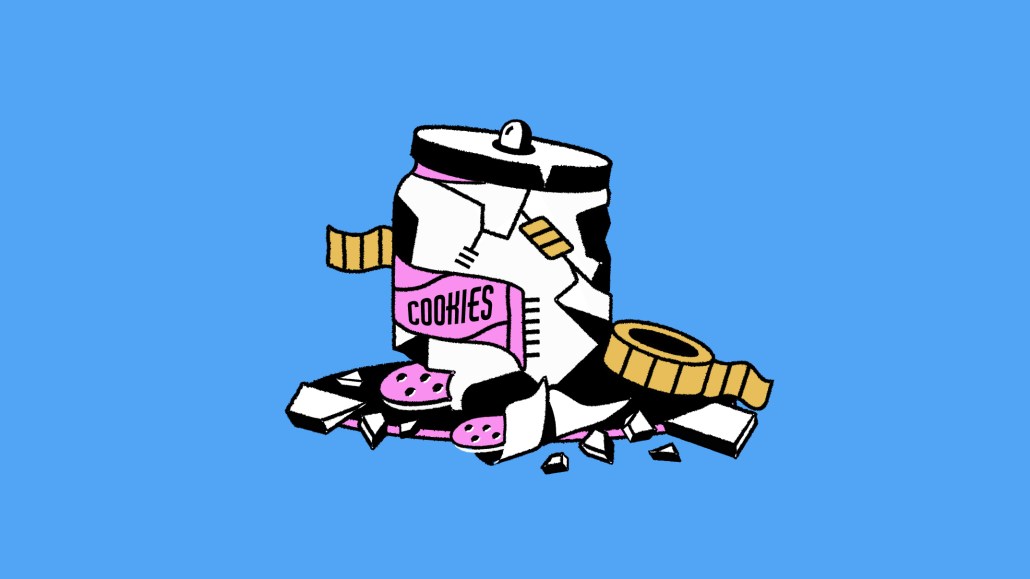Secure your place at the Digiday Media Buying Summit in Nashville, March 2-4
Digiday Research: Publishers are much less worried about the coming cookie changes than brands and agencies

This research is based on unique data collected from our proprietary audience of publisher, agency, brand and tech insiders. It’s available to Digiday+ members. More from the series →
Several months of preparation for the coming cookie-pocalypse appear to have brought publishers some peace of mind. They have not had quite the same effect on brands and agencies, according to Digiday+ research.
As of the beginning of the third quarter of 2021, less than 50% of the publisher professionals Digiday surveyed said they were worried about their ability to target ads or measure their effectiveness without third-party cookies. By contrast, a majority of both brand and agency respondents said they were worried about those things; more than three quarters of brand respondents, for example, are worried about their ability to target and measure ads without third party cookies.
Though a number of developments — more companies now preparing for the end of third party cookies, and a nearly two-year extension of Google’s original deadline — have helped lower anxiety about this change with publishers and agencies, it seems not to have helped brands, who are actually more concerned about this than they were six months ago.
On the whole, agencies seem to be relatively unconcerned by these kinds of changes — less than a quarter of agency respondents agreed that the end of third party cookies would hurt their businesses, compared to nearly half of brand-side respondents. Only about one third of publishers agree that the change will hurt their businesses.
Digiday polled 282 media and marketing professionals in the third quarter of 2021 and asked them how they were feeling about the coming deprecation of third party cookies. Digiday asked 280 media and marketing professionals an identical set of questions in the first quarter of 2020.
While the two surveys’ samples were not identical, their compositions were similar: Each panel had at least 30 respondents that worked at either a brand, an agency or a publisher; both survey samples featured at least 100 publisher and 100 agency respondents.
More in Marketing

Future of Marketing Briefing: AI’s branding problem is why marketers keep it off the label
The reputational downside is clearer than the branding upside, which makes discretion the safer strategy.

While holdcos build ‘death stars of content,’ indie creative agencies take alternative routes
Indie agencies and the holding company sector were once bound together. The Super Bowl and WPP’s latest remodeling plans show they’re heading in different directions.

How Boll & Branch leverages AI for operational and creative tasks
Boll & Branch first and foremost uses AI to manage workflows across teams.








